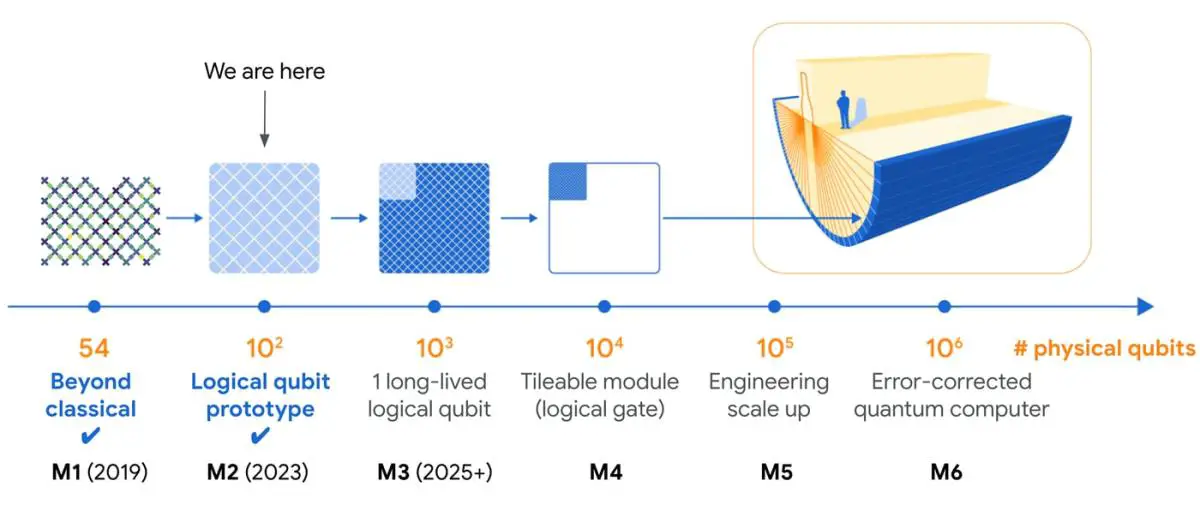A Millionaire-Maker in the Making?
Quantum computing expert IonQ (NYSE: IONQ) is taking the stock market by storm nowadays. By Dec. 11, the stock has gained 143% year to date, including a 289% jump in just the last three months.
This is a hot topic. Excluding microcap stocks too small to mention, four of the 10 biggest gainers in the last quarter specialize in quantum computing hardware.
Investors and technology enthusiasts expect a lot from quantum computers. IonQ is the largest pure-play investment in this space, boasting a $6.5 billion market cap. Can this small quantum computing developer make early investors a fortune in the long run?
Let’s find out.
In simple terms, quantum computers will eventually be able to solve problems that no digital computer could tackle.
These systems don’t push electric current through a huge maze of predictable logic controls, like the computers (and calculators and phones and so on) you see today. Instead, they rely on intricate concepts of quantum mechanics in a probability-based way.
Quantum computers may not be great at solving mathematical problems with perfect accuracy, but they will eventually be able to optimize the living daylight out of complex real-world systems. Examples of quantum-friendly issues include analyzing genetic codes, cracking sophisticated cryptography, forecasting the weather, and training artificial intelligence (AI) systems.
Quantum computing can disrupt many industries while creating entirely new business ideas. But that promise lies in the distant future when the experimental systems on the market today have evolved into industrial-scale number crunchers.
How far away is that commercial success story? Well, tech titan and Alphabet (NASDAQ: GOOG) (NASDAQ: GOOGL) subsidiary Google recently published a milestone achievement in its quantum computer development. A system with 100 so-called qubits of processing power was able to do some simple error correction in a noisy computing project.
Error correction is a crucial part of these messy systems, so it’s an important step forward — but also a very small one. Google expects quantum computers to have commercially useful error correction in systems with 10,000 qubits or more.
So, IonQ faces an exciting long-term future alongside smaller rivals like D-Wave Quantum (NYSE: QBTS) and Rigetti (NASDAQ: RGTI). But the road ahead is full of dangerous potholes.
-
Some of these companies, including IonQ, are building and shipping quantum computers today. However, their order volumes are very small, and their core business so far is focused on research and development. Given the immature and impractical state of existing quantum computing systems, it may take years to generate revenue streams of a truly commercial scale.
-
These companies are deeply unprofitable. IonQ collected $37.5 million in revenues over the last four quarters but reported negative free cash flow of $120.4 million for the same period. It’s the same story when you look at bottom-line earnings or any other profitability metric, and it applies to every pure quantum computing business today.
-
These companies are burning through their cash reserves in a hurry. IonQ has the largest bank account of the bunch and has not resorted to dilutive stock sales or expensive debt papers yet. It may very well have to use those painful financial tools to keep the lights on in the next couple of years, though.
-
Oh, and did you catch the big name I dropped earlier? IonQ is the largest quantum-focused company on the stock market, but it also faces competition from much larger companies that can throw massive budgets at the quantum market and still call it a small side gig. Besides Google, this group includes behemoths like Microsoft, IBM, and even Nvidia.
#MillionaireMaker #Making







